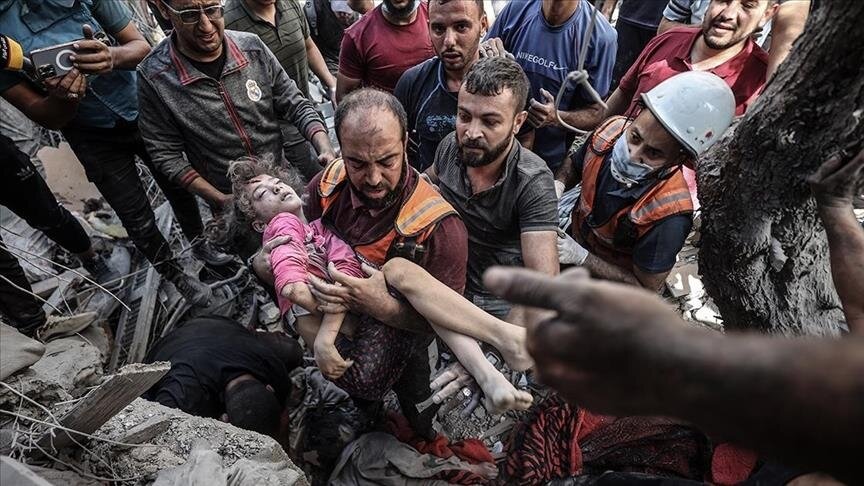Gaza is breaking point of liberal international order
Gaza tragedy entails new theories in global governance

TEHRAN - The ongoing war in Gaza, beyond its tragic humanitarian dimensions, has become a major test for the international order—an order that emerged after World War II based on institutions such as the United Nations, human rights regimes, and liberal principles like the rule of law, global justice, and the responsibility to protect.
However, the catastrophic developments in the Gaza Strip since October 2023 have deeply challenged this order. The systematic killing of civilians, continuous attacks on civilian infrastructure including hospitals, schools, refugee camps, and holy sites, along with the silence or complicity of Western powers in these crimes, have created a deep rift between the theoretical claims of the liberal order and the realities on the ground.
In this context, Gaza is not merely a besieged territory and victim of Israel’s occupation policies—it has become a moral, political, and institutional rupture point for the global liberal order. This order, primarily founded after World War II under U.S. hegemony, was built on principles such as human rights, democracy, free-market economies, multilateralism, and international institutions. Especially after the Cold War, it was promoted as the dominant model in international relations, with many institutions and regimes established to reinforce it. Yet, the liberal order has consistently been criticized by realists, Marxists, and postcolonial theorists for reproducing Western domination and reinforcing structural inequalities.
Within this framework, the war in Gaza serves as a historical litmus test for the liberal order’s fidelity to its declared values. While liberal principles assert that attacks on civilians, bombings of medical infrastructure, blockades, and starvation tactics constitute grave violations of international humanitarian law, in Gaza we see these acts persistently carried out by Israel without serious repercussions—especially from major powers like the United States. On the contrary, we witness political, financial, and military support from the U.S. and some European governments. This blatant double standard fundamentally undermines the moral legitimacy of the liberal order.
International institutions have also lost their effectiveness in this crisis. The United Nations Security Council, despite efforts by some nations to pass binding resolutions for a ceasefire, has repeatedly failed due to U.S. vetoes. While the General Assembly has passed symbolic resolutions, it lacks enforcement mechanisms to halt the violence. The International Criminal Court, under political pressure, has proven incapable of swiftly addressing war crimes. This institutional failure widens the gap between formal justice and actual justice and erodes public trust in the international legal order.
A particularly alarming aspect of the Gaza crisis is the dysfunction of international institutions like the UN Security Council in curbing this humanitarian catastrophe. Resolutions are either vetoed, issued with vague and ineffective language, or at best express mere concern. If a global order is truly based on rules, human rights, and accountability, how can genocide in Gaza continue for months without the activation of any legal, diplomatic, or even symbolic deterrent tools? This implementation void not only questions the legitimacy of these institutions but also reveals that the liberal order only functions when it aligns with the interests of great powers.
This is where the concept of the Responsibility to Protect (R2P), introduced in the aftermath of the Rwandan and Bosnian genocides in the 1990s, faces a critical challenge. R2P claims that the global community has a duty to protect populations from genocide, war crimes, ethnic cleansing, and crimes against humanity—even if doing so requires intervening in a state’s internal affairs.
Leave a Comment